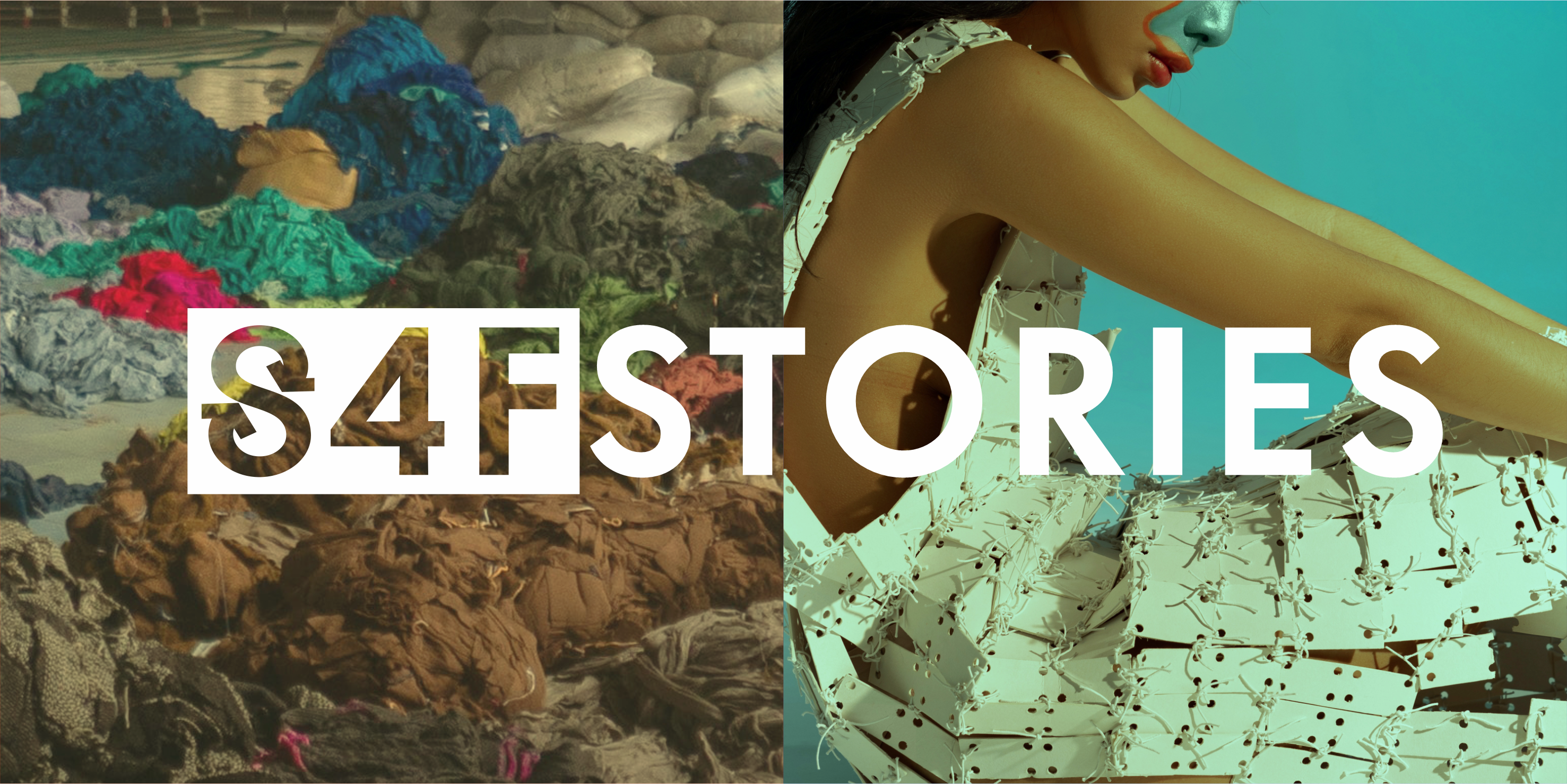Dahlia Rodriguez was a dressmaker and quilter who was dreaming about making garments by reusing old textiles, especially bed linen sheets that she used to collect from flea markets and her grandmother’s house.
She met Svetlana from Empty Your Wardrobe who was in search of a passionate craft maker who possesses a sustainable mindset and similar philosophy and Marta from Warm & Wild who always dreamt of having a collection of sustainable clothes created with fabrics dyed by her with plant-based dyes.
Their paths got funnily crossed and together launched Make Your Bed Project to develop MUB Collection.
Why do you support circular/sustainable fashion?
The love for sustainability and protecting nature united us. Our first motivation was to convert what is considered waste into something beautiful and useful. To provide a second life to not-anymore-loved fabrics was our purpose. Three of us were already involved in creative and social practices promoting sustainability and sustainable fashion.
What is your main challenge implementing sustainability/circular fashion in your vocation?
We developed MUB collection as a capsule collection based on the principles of the circular economy with the aim of raising awareness of the impact of fashion on our
planet because earth’s resources are becoming more limited and innovative solutions to make fashion, one of the most polluting industries, sustainable are urgently needed.
Our main challenge was to be innovative and provide a new solution to the wicked problem of fashion pollution.
By combining our skills, knowledge and added value we achieved a circular economy based initiative promoting also the values of traditional techniques and craftsmanship heritage. Sourcing not-loved-any-more fabrics and giving them a second life through
natural dyeing processes was an amazing way of implementing a circular process in our value chain.
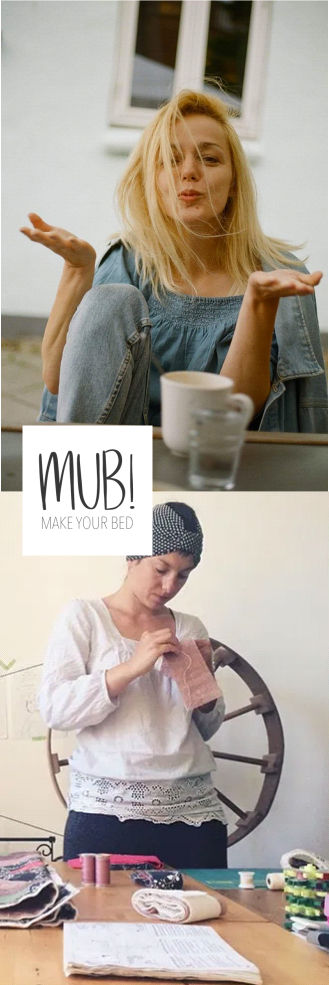
Describe the experience!
The experience of developing MUB Collection project was amazing. We came upon the fact that our skills complement each other. However, it was important to find a cohesive image and merge these three personalities into one single concept. It was primarily to build a concept aligned with our esthetics and values.
The process of developing the capsule collection has been a challenge by itself because it included different but complementary steps that needed joint efforts and the best from each of us. Namely, the concept of the capsule collection, the sourcing of swapped and discarded home clothing and garments, the application of a natural dyeing process, the design of the collection, and its manufacturing taking into account the characteristics of the fabrics collected.
With all the challenges we have faced, new opportunities were discovered. At the level of collecting and sourcing the raw materials for the collection, EYW had to be innovative and cope with Covid-19 health restrictions which strongly impacted our plans for the organization of swap markets and events. Fortunately, through partnership and cooperation, Empty Your Wardrobe succeeded in organizing 3 swap markets and to implement a Swap Spot in Kolding (DK) to serve as a sourcing spot as well as esablsh a partnership with a textile company to source not-loved-any more fabrics.
At the level of natural dyeing, fabrics sourced were naturally dyed by Warm and Wild with food waste and other natural resources (onion skins, avocados, nutshells, eucalyptus, flowers, roots, etc) and techniques such as deep dyeing, bundle dyeing, and tie-dyeing, among others. Dyeing with plant-based dyes is always a mystery, as
you never know the exact colour you will get. It’s magical to see how a fabric turns from white to a marvelous blush pink just by using avocado stones. And also, some of the smells dyes leave on the clothes are very special. The uniqueness of the colours created by nature is part of what makes MUB collection so exceptional.
For the development of MUB’s Capsule collection it was really important to be sure that three of us were part of the creative process. That’ s why the development of the concept was done through a brainstorming exercise, digitally organised because of Covid-19, that included the definition of a common mood board as well as a joint
selection of the essential garments. The second step towards the development of the capsule collection was the design of the garments following a common selection of shapes, styles, patterns and values that could match with the clothes and fabrics sourced. During the design and manufacturing process it was important for the collection to embrace minimal waste principles.

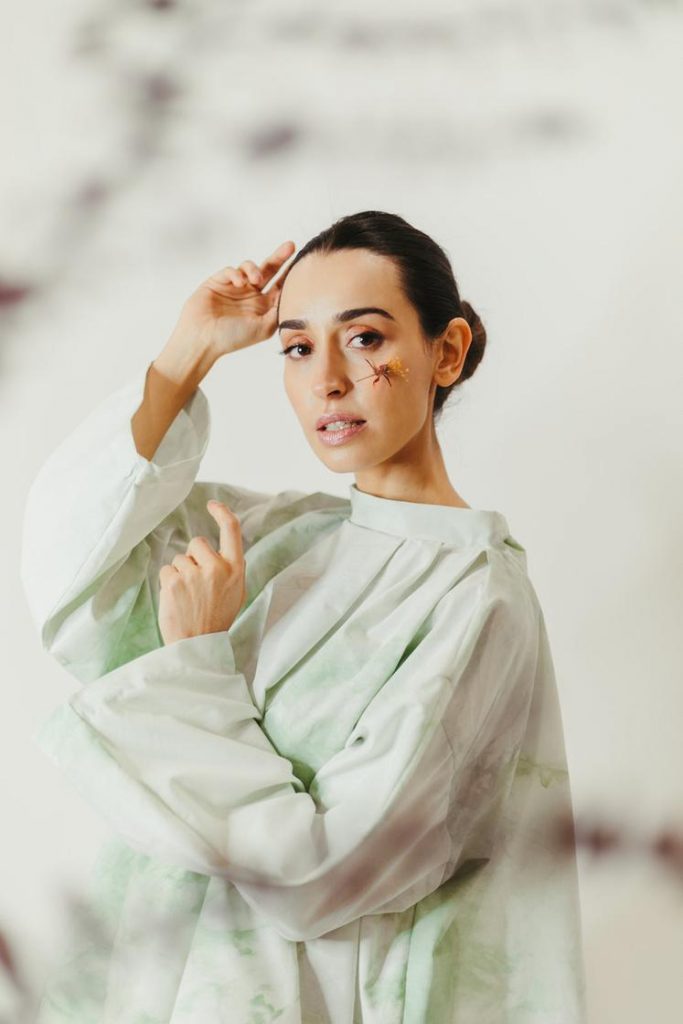



What are your learnings and what advice can you share with others?
Through the Make Your Bed project we realized how important it is to have a team.
Bringing together people with diverse skills, coming from different countries, trying to work as a team could generate huge conflict, especially if we take into account that due to the Covid-19 pandemic we never had the chance to meet in person. Indeed through these conflicts and challenges, innovative solutions were born, bold decisions were made and critical situations have been overcome.
Through the power of quality of conversation, openness to learning from others, professionalism, accepting different point of views, having the freedom to create but as well deliver on time, seeing “both” sides, and being responsible – that we call “a learning path” we were so happy to “walk the talk” together.
Developing MUB Collection as a transnational joint project make us feel empowered and believe more than ever in the success of MUB Collection as an example of sustainable capsule collection of garments following the principles of the Circular Economy.
Moreover, we believe that by joining our complementary skills, we have created something unique and different, in connection with our values and in line with our professional paths: bringing new models of collaboration and co-creation to disrupting the current fashion system.
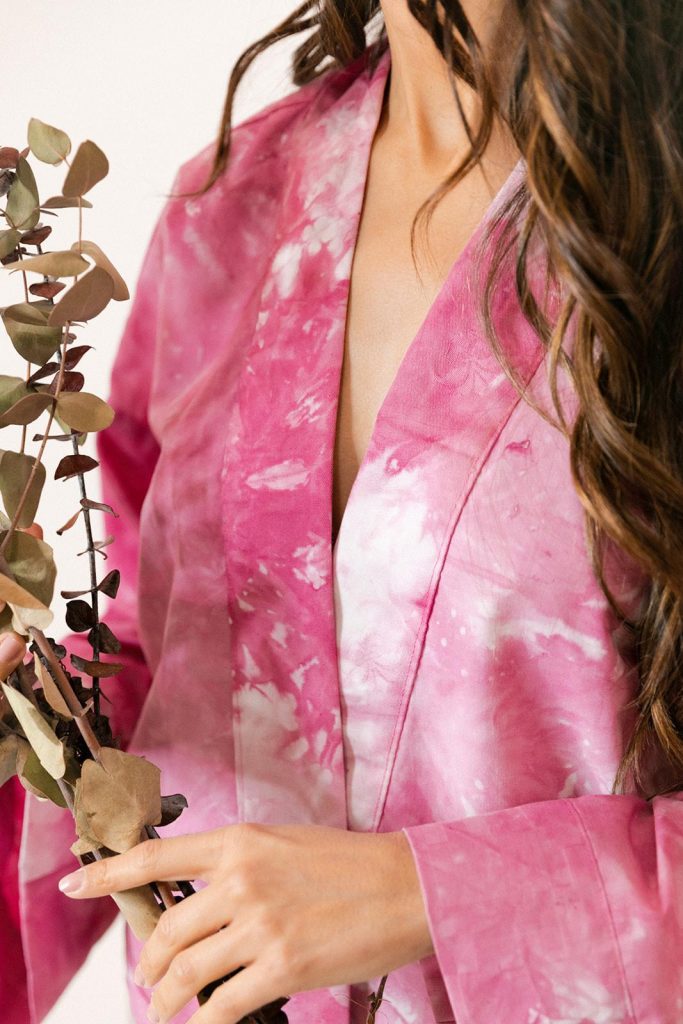
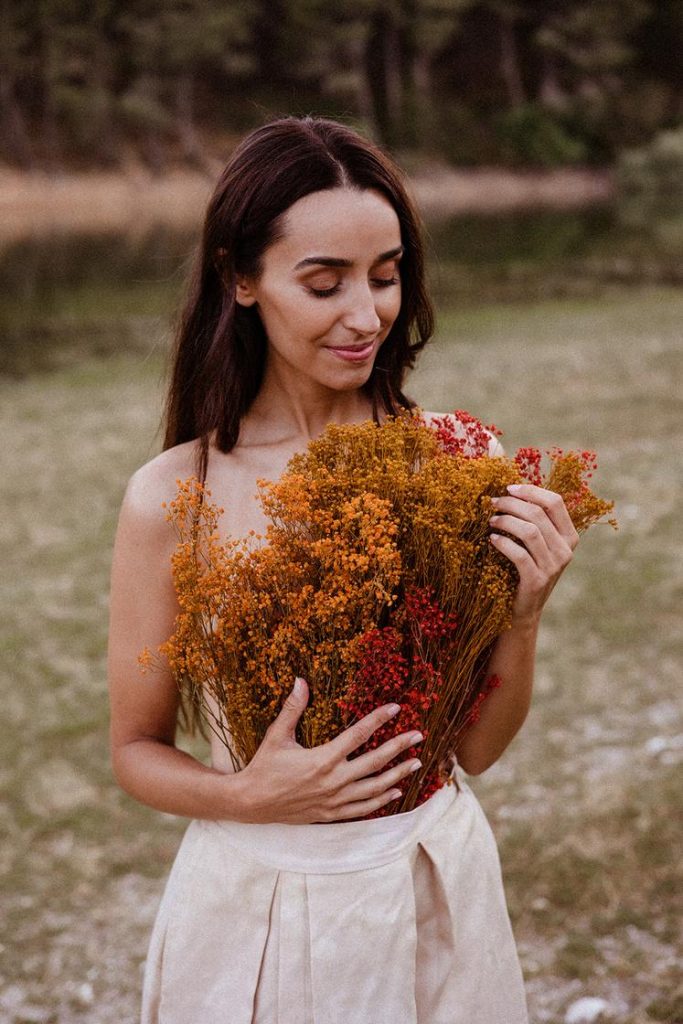
Important notice: The above content is not approved by the European Commission.
